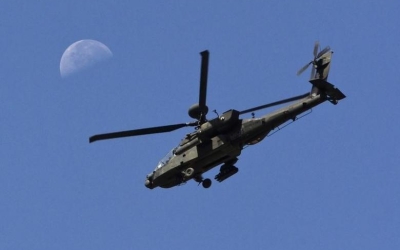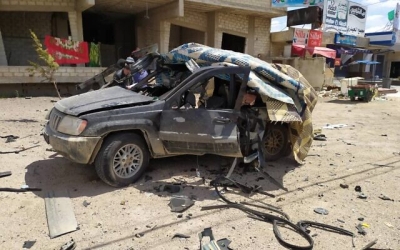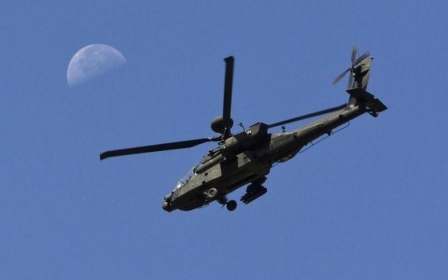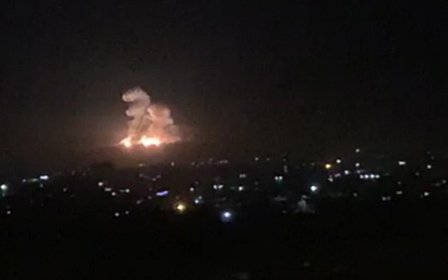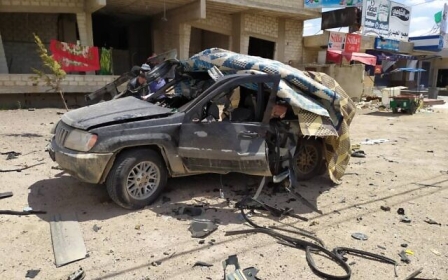Strikes in eastern Syria reportedly kill Iranian and Iraqi fighters
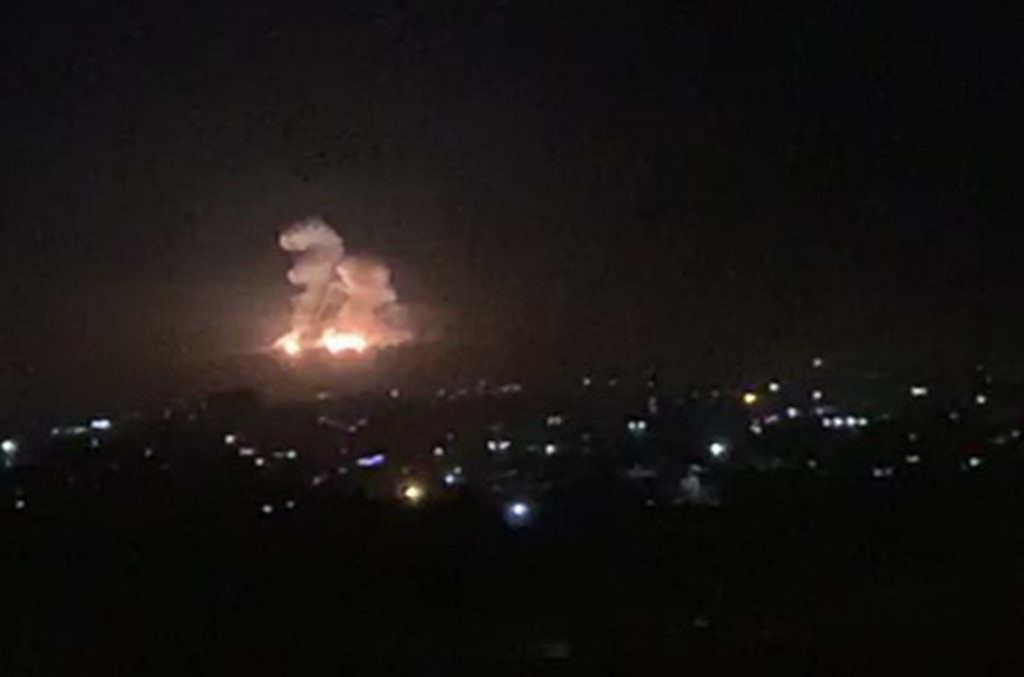
Overnight strikes on positions held by Iran-backed militias and their allies in eastern Syria killed 14 fighters, the Syrian Observatory for Human Rights said on Tuesday.
It was not immediately clear who carried out the strikes in the desert near the town of Mayadin, which came minutes after Syria said its air defences had intercepted Israeli strikes over the country's north.
Rami Abdul Rahman, head of the UK-based activist monitor, said it was "likely" that Israel mounted the Mayadin operation, which he said killed several Iraqi as well as Iranian fighters.
Earlier, Syria said its air defences thwarted an Israeli missile attack on a research centre and a military base in the northern province of Aleppo, in the sixth such attack in two weeks on suspected Iranian targets.
The Syrian army said in a statement that Israel had hit a military barracks in al-Safirah, in the eastern Aleppo countryside.
The army said it was now assessing the damage caused by the strikes.
Last week, a regional intelligence source told Reuters that Israel was stepping up raids in Syria at a time when world attention and the region, including Syria, were distracted by the coronavirus pandemic.
An Israeli army spokeswoman declined to comment on the Aleppo report, Reuters said.
Western intelligence sources say Iran-backed militias have long been entrenched in Aleppo province, where they have bases and a command centre and installed advanced weapons, part of a growing presence across government-controlled Syria.
Chemical weapons
The Scientific Studies and Research Centre is one of several facilities where western intelligence and opposition sources suspect Syria, with the help of Iranian researchers, of working on developing chemical weapons, which they accuse Syria of having used against civilians in rebel-held areas.
Damascus and its ally Moscow deny they have used chemical weapons that have killed hundreds of civilians in the course of the nine-year conflict and blame rebel groups for such attacks.
Israel has previously struck several military research facilities it believes to have been a centre for chemical and biological weapons.
On Friday, Israeli helicopters fired several rockets from the Israeli-occupied Golan Heights on targets inside southern Syria known to be a base for Lebanon's Hezbollah militia, Syria and intelligence sources said.
The Syrian government does not say Iranian bases are targeted when it announces details of Israeli raids.
Major blasts in an ammunition depot near Homs city on Friday were also believed to be from an Israeli strike, the Observatory and intelligence sources said.
Authoritarian rule
Israel has acknowledged in recent years that it has conducted many raids inside Syria since the start of the civil war in 2011. It sees Iran's presence in Syria as a strategic threat.
Regional intelligence sources say that Israel's escalating strikes on Syria are part of a shadow war sanctioned by Washington as part of its anti-Iran policy.
Israeli Defence Minister Naftali Bennett told local media last week that Israel would step up its campaign against Iran in Syria.
Separately, a regional intelligence source said Israeli jets are believed to have hit Iranian-backed militias entrenched in the border town of al-Bukamal, close to Iraq and where Iraqi paramilitary groups have a strong foothold.
The US military in January struck Iran-backed militia groups in areas in Iraq and Syria along the border area, in what US officials then said was a response to escalating provocations from Iran.
Iran's support, alongside Russia, has helped Syrian President Bashar al-Assad turn the tide against an opposition that had seized large tracts of territory and sought to overthrow his authoritarian rule.
Middle East Eye delivers independent and unrivalled coverage and analysis of the Middle East, North Africa and beyond. To learn more about republishing this content and the associated fees, please fill out this form. More about MEE can be found here.


